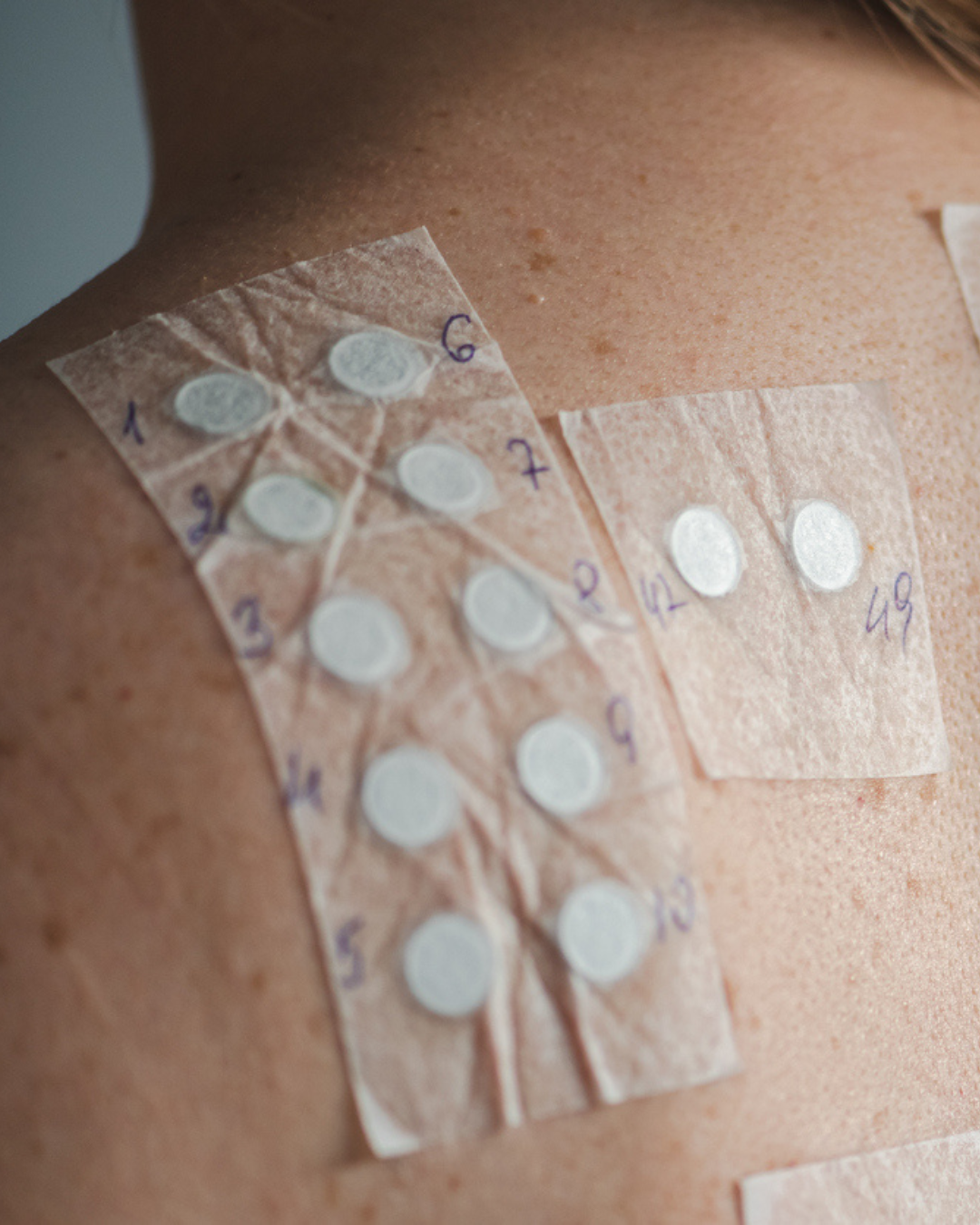
Expert management of eczema to reduce flare-ups, control itching, and improve your quality of life.
Eczema, also known as atopic dermatitis, is a chronic inflammatory skin condition that causes dry, red, itchy, and inflamed skin. It affects people of all ages but is most common in infants and children, often improving with age. However, many adults continue to experience flare-ups triggered by environmental, immune, and genetic factors.
Eczema is not contagious, but it can be persistent and uncomfortable, significantly impacting sleep, daily activities, and quality of life. At Southern Dermatology, we specialise in advanced eczema management, helping patients achieve long-term symptom relief and healthier skin.
Eczema at a glance
✔ Atopic Dermatitis – The most common form of eczema, often associated with asthma and hay fever. Characterised by dry, red, intensely itchy skin, typically affecting the face, hands, elbows, and knees.
✔ Contact Dermatitis – Caused by skin irritation or allergic reactions to substances like fragrances, chemicals, or metals.
✔ Nummular Eczema – Round, coin-shaped patches of dry, inflamed skin that often appear on the arms and legs.
✔ Dyshidrotic Eczema – Small, fluid-filled blisters on the palms, fingers, and soles, often triggered by stress or allergens.
✔ Seborrhoeic Dermatitis – Affects oily areas like the scalp, face, and chest, causing flaking and redness (commonly known as dandruff).
✔ Neurodermatitis – Localised thick, itchy patches of skin, often triggered by scratching or stress.
✔ Stasis Dermatitis – Occurs in individuals with poor circulation, leading to redness, swelling, and irritation, particularly in the lower legs.
✔ Genetic Factors – A family history of eczema, asthma, or hay fever increases the risk.
✔ Impaired Skin Barrier – A weakened skin barrier leads to moisture loss and increased sensitivity to irritants.
✔ Overactive Immune Response – The immune system overreacts to triggers, causing inflammation and flare-ups.
✔ Environmental Irritants – Exposure to harsh soaps, detergents, fragrances, and chemicals can worsen symptoms.
✔ Allergens – Pollen, dust mites, pet dander, and mold can trigger eczema flare-ups.
✔ Weather Conditions – Cold, dry air and excessive heat or humidity can aggravate eczema-prone skin.
✔ Stress & Anxiety – Emotional stress can worsen itching and inflammation.
✔ Diet & Food Sensitivities – Certain foods, such as dairy, eggs, nuts, or gluten, may trigger flare-ups in some individuals.
✔ Hormonal Changes – Fluctuations during pregnancy, menstruation, or menopause can contribute to flare-ups.
✔ Medical-Grade Moisturisers & Barrier Creams – Helps repair the skin barrier and retain moisture.
✔ Topical Corticosteroids & Anti-Inflammatory Creams – Reduces redness, itching, and swelling.
✔ Calcineurin Inhibitors (Non-Steroidal Creams) – Safe, long-term alternatives to steroids for reducing inflammation.
✔ Oral Medications (Antihistamines & Immunosuppressants) – Helps manage severe or persistent eczema.
✔ Phototherapy (UV Light Therapy) – Uses controlled light exposure to reduce inflammation and improve skin health.
✔ Biologic Therapies (Injectable Medications) – Target immune system pathways responsible for severe eczema.
✔ Wet Wrap Therapy – Involves applying moisturiser and corticosteroids under damp bandages to boost hydration and reduce symptoms.
✔ Lifestyle Modifications – Gentle skincare, avoiding irritants, stress management, and dietary adjustments.
Treatments We offer for Eczema
Frequently Asked Questions
Eczema is caused by a combination of genetic, immune, and environmental factors, leading to skin barrier dysfunction and inflammation.
No, eczema is not contagious—it is an inflammatory skin condition, not an infection.
Eczema is characterised by dry, red, itchy patches that may flare up due to triggers. A specialist dermatologist can accurately diagnose your skin condition.
There is no permanent cure, but with expert management, symptoms can be controlled, minimised, and even prevented.
A combination of moisturisers, anti-inflammatory creams, lifestyle changes, and medical treatments is most effective.
In some cases, food sensitivities (e.g., dairy, gluten, eggs, nuts) may contribute to eczema flare-ups.
Yes, stress can worsen inflammation and trigger flare-ups. Stress management techniques such as exercise and meditation can help.
Yes, when used correctly under a dermatologist’s guidance, topical steroids are safe and effective.
At least twice daily to maintain a strong and hydrated skin barrier.
Yes, severe itching can disrupt sleep, but proper treatment can significantly reduce nighttime discomfort.
Yes, eczema tends to run in families, especially if there’s a history of asthma or hay fever.
Yes, eczema can develop at any age, even if you never had it as a child.
Cold air, low humidity, and indoor heating can dry out the skin and exacerbate eczema symptoms.
For some, eczema improves with age, while others may experience persistent or recurring flare-ups.
You can fill out our online consultation form, and our dermatologists will assess your condition and create a tailored treatment plan.


